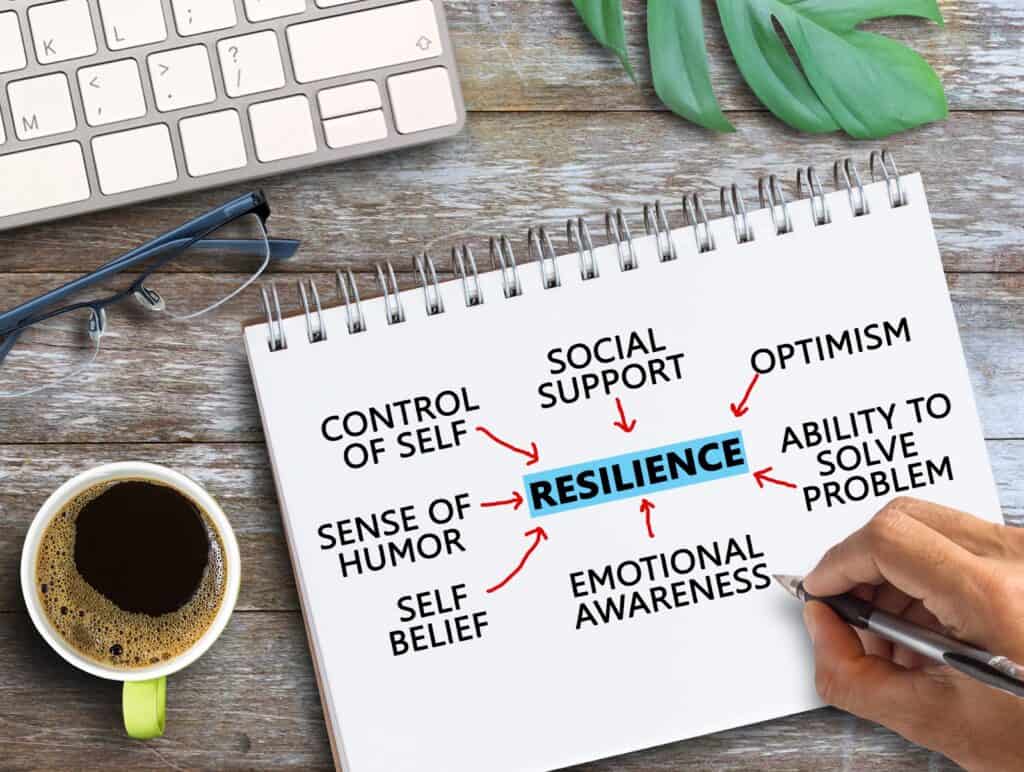
In a world where dependence on external factors often seems like the norm, the concepts of independence and self-reliance stand out as empowering principles that can transform our lives. These principles are not just about doing things on our own; they’re about building confidence, taking control, and living authentically. From personal growth to financial stability, independence, and self-reliance offer a pathway to a fulfilling and resilient life.
Key Takeaways
- Independence refers to the ability to make one’s own choices and be responsible for the outcomes. It encompasses freedom of thought, financial autonomy, and independent decision-making.
- Self-reliance emphasizes the capability to handle life’s challenges without external support. It involves problem-solving skills, emotional resilience, and practical skills like cooking or repairs.
- Both independence and self-reliance lead to empowerment and personal growth. They value healthy relationships and collaboration, not isolation.
- Pursuing independence and self-reliance enhances confidence, control over one’s life, financial stability, a proactive mindset, and accountability.
- To apply these principles in daily life, one should define clear goals, acquire essential skills, manage finances wisely, cultivate self-awareness, and engage in lifelong learning.
But, how do they do so in the modern era? Let’s first discuss what self-reliance and independence are and how they differ before getting into the specifics.
Is self-reliance the same as independence?
When we talk about independence and self-reliance, the terms often seem interchangeable. However, while they share some common ground, they are not exactly the same. Let’s delve into the nuances to understand what sets them apart and how they complement each other.
Independence
Independence refers to the ability to stand on one’s own without relying on others. It’s about making your own choices, following your path, and being responsible for the outcomes. Independence is often associated with:
- Freedom of Thought: Having your own opinions and beliefs, uninfluenced by others.
- Financial Autonomy: Managing your finances without needing assistance.
- Decision Making: Making choices based on your judgment, without seeking approval or validation.
Self-Reliance
Self-reliance, on the other hand, emphasizes the ability to take care of oneself without external support. It’s about developing skills and confidence to handle life’s challenges on your own. Key aspects of self-reliance include:
- Problem-Solving Skills: Finding solutions to challenges without relying on others.
- Emotional Resilience: Handling emotions and stress independently.
- Practical Skills: Being able to perform essential tasks like cooking or repairs without assistance.
The Intersection
While independence emphasizes autonomy and freedom, self-reliance focuses on the skills and mindset needed to achieve that autonomy. In other words, self-reliance is a pathway to independence. Here’s how they intersect:
- Empowerment: Both concepts empower individuals to take control of their lives.
- Personal Growth: They foster growth by encouraging responsibility, decision-making, and skill development.
- Interdependence: Interestingly, both independence and self-reliance recognize the value of healthy relationships and collaboration. They don’t mean isolation but rather the ability to engage with others from a position of strength and self-assurance.
Why is self-reliance and independence important?
In the pursuit of independence and self-reliance, one might wonder why these concepts hold such significance in our lives. The importance of these principles transcends mere self-sufficiency; they shape our character, our relationships, and our approach to life. Let’s explore why they are so vital:

Confidence grows through mastering new skills and problem-solving.
When you learn to solve problems on your own and acquire new skills, your confidence naturally grows. Whether it’s fixing a leaky faucet or making a significant life decision, the ability to rely on yourself fosters a sense of accomplishment and self-assurance. This confidence, in turn, propels you to take on even greater challenges, creating a positive cycle of growth and empowerment.
Self-reliance minimizes the need for external support, enhancing control.
Being self-reliant means you don’t have to depend on others for your basic needs or decisions. This independence gives you greater control over your life, allowing you to shape your destiny according to your values and desires. It’s not about isolating yourself from others but about having the ability to stand on your own when needed.
Managing finances independently ensures control and long-term stability.
Financial independence is a cornerstone of self-reliance. By managing your finances wisely, you secure your future and protect yourself from unforeseen challenges. Whether it’s budgeting, saving, or investing, taking charge of your financial life ensures stability and freedom, allowing you to pursue your dreams without undue constraints.
Self-reliance nurtures a proactive mindset, reducing procrastination.
When you cultivate self-reliance, you develop a proactive approach to life. You don’t wait for others to solve your problems or make decisions for you. This mindset reduces procrastination and fosters a can-do attitude, enabling you to seize opportunities and act decisively.
Beyond self-reliance, self-management plays a pivotal role in effective learning. Explore the importance of self-management for learning and how it can boost your educational journey in this detailed piece.
Being responsible for actions reinforces accountability and ethics.
Independence and self-reliance instill a strong sense of personal empowerment through responsibility and accountability. When you know that the consequences of your actions rest solely on your shoulders, you are more likely to act ethically and responsibly. This integrity not only enhances your self-respect but also builds trust in your relationships.
Self-reliance encourages continuous learning and self-improvement.
The path to self-reliance is paved with continuous learning and self-improvement. Whether it’s acquiring a new skill or reflecting on personal growth, the pursuit of independence encourages a lifelong commitment to development. This continuous growth enriches your life and keeps you engaged and fulfilled.
Self-reliance fosters a sense of purpose and direction in life.

Having a clear sense of independence and self-reliance gives direction and purpose to your life. It allows you to align your actions with your values, pursue your passions, and live a life that is truly yours. This alignment fosters a deep sense of satisfaction and meaning.
Pursuing an independent path allows exploration of unique opportunities.
Independence opens doors to unique opportunities that might otherwise remain closed. Whether it’s starting a business, traveling the world, or exploring a new hobby, the confidence, and skills gained through self-reliance enable you to explore paths less traveled and discover what truly resonates with you.
How to apply the concept of independence and self-reliance?
Applying the principles of independence and self-reliance in daily life is a transformative journey. It’s not just about doing things on your own; it’s about cultivating a mindset that empowers you to live authentically and confidently.
Here’s how you can traverse this rewarding path:
Define clear and achievable goals that align with your values and interests.
Start by identifying what independence and self-reliance mean to you. Set clear and achievable goals that resonate with your values and interests. Whether it’s learning a new skill or becoming financially independent, having a clear direction helps you stay focused and motivated.
Acquire essential skills like cooking, budgeting, or basic repairs.
Independence often begins with mastering essential life skills. Whether it’s cooking a healthy meal, managing a budget, or performing basic home repairs, these skills not only foster self-reliance but also enhance your confidence and self-esteem.
Transitioning into adulthood smoothly means mastering the essential independent living skills for young adults.
Research and evaluate options before making decisions.
Make informed decisions by researching and evaluating all available options. Whether it’s choosing a career path or making a significant purchase, taking the time to gather information empowers you to make choices that align with your goals and values.
While we’ve touched on some basic life skills, understanding the full importance of independent living skills can be transformative.
Recognize mistakes as opportunities to learn and grow.

Embrace mistakes as valuable learning opportunities. Instead of dwelling on what went wrong, focus on what you can learn from the experience. This positive approach fosters resilience and encourages continuous growth and improvement.
Manage finances by creating a budget, saving, and investing wisely.
Create a budget that reflects your priorities, save consistently, and invest wisely to build long-term stability and freedom. Managing your finances with intention and discipline lays the foundation for a secure and independent life.
Develop self-awareness and emotional regulation to handle challenges.
Cultivate self-awareness and learn to regulate your emotions. Understanding your triggers and developing coping strategies enable you to handle challenges with grace and confidence. Emotional intelligence is a key component of self-reliance and personal growth.
While self-awareness is essential for everyone, it holds special significance for students. Learn why self-awareness is vital for students and how it can shape their academic and personal growth in this detailed post.
Cultivate relationships that encourage independence.
Surround yourself with people who support and encourage your independence. Seek relationships that respect your autonomy and inspire you to grow. Healthy relationships enhance your sense of self-reliance without compromising connection and support.
Practice mindfulness to enhance self-awareness and independent thinking.
Mindfulness practices like meditation and reflective journaling foster self-awareness and independent thinking. By tuning into your thoughts and emotions, you cultivate a deeper connection with yourself, enhancing your ability to make independent and authentic choices.
Establish personal boundaries to maintain independence in relationships.

Set clear and respectful personal boundaries in your relationships. Whether it’s with family, friends, or colleagues, maintaining boundaries ensures that your independence is honored and that you engage with others from a position of strength and self-assurance.
Engage in lifelong learning to adapt to new challenges and maintain self-reliance.
Commit to lifelong learning to adapt to new challenges and maintain self-reliance. Continuously seek opportunities to learn and grow, whether through formal education, workshops, or self-study. Lifelong learning keeps you engaged, adaptable, and resilient.
While we’ve discussed the many benefits of self-reliance, it’s essential to understand both sides of the coin. Delve into the pros and cons of self-reliance to get a balanced perspective in our in-depth analysis here.
Conclusion
Independence and self-reliance are not mere concepts but essential life skills that shape our character, guide our decisions, and enrich our lives. They empower us to live authentically, responsibly, and with a sense of fulfillment and joy. Embracing these principles is a journey worth undertaking, a path that leads to a life of meaning, purpose, and endless possibilities.









